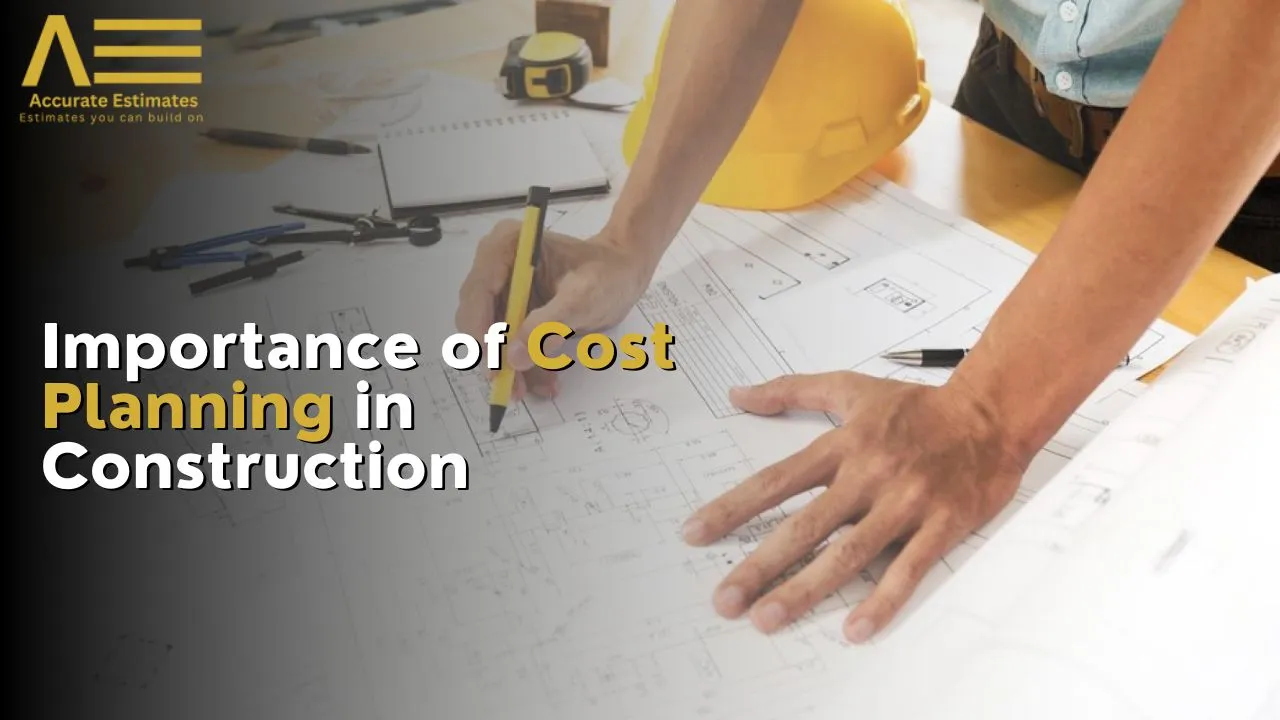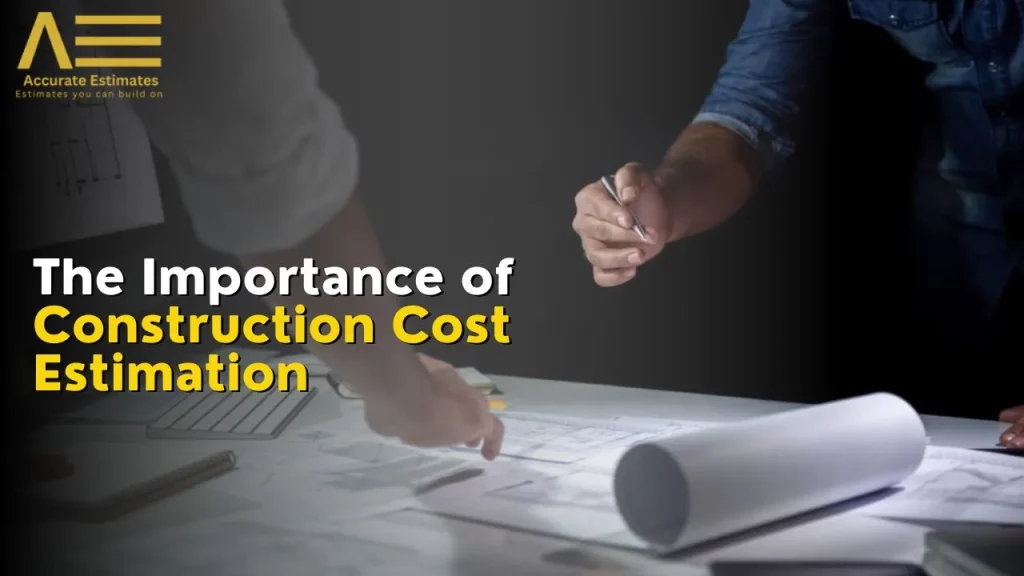Importance of Cost Planning in
Construction - A Complete Guide

Table of Contents
In construction projects, meticulous planning is the cornerstone of success. Cost planning is a crucial aspect that requires the utmost attention. As we delve into the construction world, we unravel the pivotal role that cost planning plays in project management. From the inception of a project to its completion, the efficient management of costs can make or break the outcome.
Understanding Cost Planning: The Foundation of Construction Projects
A crucial component of any prosperous construction project is a meticulously planned cost plan. A cost plan is a roadmap outlining the estimated expenses for the entire project lifecycle. It involves assessing the materials, labor, equipment, permits, and other associated costs. This preliminary estimation is a guidepost for making informed decisions throughout the project.
The Pros and Cons of Cost Control: Balancing Act for Success
Pros:
- Financial Transparency: Cost planning provides stakeholders with a clear view of the financial requirements, fostering transparency and accountability.
- Risk Mitigation: By identifying potential cost overruns early, construction teams can proactively mitigate risks and stay within budget.
- Informed Decision-Making: Accurate cost projections empower project managers to make well-informed choices, minimizing uncertainties.
Cons:
- Overemphasis on Cost: Overemphasizing cost control might compromise quality, safety, or scope, ultimately impacting the project’s success.
- Rigid Plans: Rigorous cost plans can hinder adaptability, making it challenging to accommodate unforeseen changes in the project.
Navigating the Waters: Steps in Cost Planning
Cost planning involves a systematic approach to ensure comprehensive estimation and control. The journey commences with a handful of essential steps.:
1. Defining Project Scope:
Delineate the project scope to understand the required tasks, materials, and resources.
2. Gathering Data:
Collect historical data, industry benchmarks, and market rates to establish realistic cost expectations.
3. Developing Estimates:
Utilize accurate estimation techniques to forecast costs for various project elements, fostering a comprehensive understanding of potential expenses.
4. Allocating Contingencies:
Set aside contingency funds to address unexpected events or changes in the project.
Importance of Cost Planning in Construction: Foundation of Decision-Making
Cost estimation services lay the foundation for informed decision-making in construction projects. They provide:
- A tangible framework for assessing the feasibility of a project.
- Aligning stakeholders’ expectations.
- Determining the project’s viability.
Cost-Saving Strategies in Construction: Finding the Middle Ground
Striking a balance between cost-saving measures and project quality is paramount. Some effective strategies include optimizing resource allocation, exploring alternative materials, and fostering efficient communication between project teams.
Pricing Construction Projects: Art and Science Combined
Pricing construction projects requires a delicate blend of art and science. It involves translating cost estimates into a competitive bid that covers expenses and accounts for profit margins.
The Crucial Role of Construction Project Cost Tracking
Continuous monitoring and tracking of costs is imperative throughout the project lifecycle. This practice enables early detection of deviations from the cost plan, allowing for timely corrective actions.
The First Step in Project Cost Management: A Strategic Approach
The initial step in effective project cost management is adopting a strategic mindset. This involves recognizing the long-term implications of financial decisions and aligning them with the project’s objectives.
Conclusion: Ensuring Success Through Comprehensive Cost Planning
Successful project management hinges on meticulous cost planning in the ever-evolving construction landscape. From inception to completion, a well-structured cost plan is a guiding light, illuminating the path toward successful project outcomes.
Also Read: Why Use Integrated Estimation Tools?
FAQs:
1. What is cost planning in construction?
Construction cost planning involves estimating and managing the expenses associated with a project, ensuring financial transparency and effective resource allocation.
2. How do cost estimates impact construction projects?
Cost estimates provide the groundwork for decision-making, project feasibility assessment, and stakeholder alignment, ultimately influencing the project’s success.
3. What are some effective cost-saving strategies in construction?
Effective cost-saving strategies include optimizing resource allocation, exploring alternative materials, and maintaining clear communication among project teams.
4. Why is continuous cost tracking essential in construction projects?
Continuous cost tracking allows for early identification of cost deviations, enabling timely corrective actions and preventing budget overruns.
5. What is the role of strategic thinking in project cost management?
Strategic thinking is crucial as it aligns financial decisions with project objectives, considering the long-term implications of each choice.
6. How does pricing construction projects involve both art and science?
Contracting construction projects requires balancing accurate cost estimates with competitive bids covering expenses and ensuring profit margins. This demands a blend of technical precision and business acumen.


